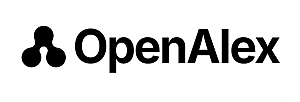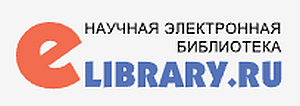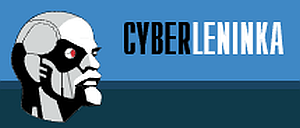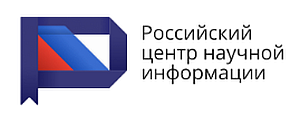The Courage to Use Your Own Intelligence as a Purpose of Education
DOI:
https://doi.org/10.47850/RL.2024.5.2.110-123Keywords:
enlightenment, reason, moral, education, upbringing, freedom, politics, lawAbstract
The paper develops the problem of educational guidelines. The purpose of the article is to show that such guidelines should not be limited exclusively to the pragmatic aspect, i.e. mastering the profession, but should include a moral and practical dimension, i.e. education to independent thinking as the foundation of the moral education of the individual. Moreover, thinking should be not only independent, but also correct, i.e. meet the criteria of universality according to the categorical imperative and communicability according to the requirements of the canon of pure reason. As a result of the study, it was concluded that courage to use your own intelligence is the motto of enlightenment, and enlightenment is the principle and purpose of education. It was also concluded that the purpose of education can be achieved only in conditions of freedom realized in the political and legal institutions of the state. But the state itself depends on how much citizens are able to reveal their potential and have the courage to think independently, as well as the ability to think correctly.
References
Кант, И. (1994а). К вечному миру. Кант И. Сочинения в 4-х томах на немецком и русском языках. Т. 1: Трактаты и письма (1784–1796). М.: Изд. фирма АО «Ками». С. 353 479.
Kant, I. (1994a). To the Eternal World. In Kant I. Works in 4 volumes in German and Russian. Vol. 1. Treatises and Letters (1784–1796). Moscow. Pp. 353-479. (In Russ.)
Кант, И. (1994б). Ответ на вопрос: что такое просвещение. Кант И. Сочинения в 4-х томах на немецком и русском языках. Т. 1: Трактаты и письма (1784–1796). М.: Изд. фирма АО «Ками». С. 127-147.
Kant, I. (1994b). The Answer to the question: what is Enlightenment? In Kant I. Works in 4 volumes in German and Russian. Vol. 1. Treatises and Letters (1784–1796). Moscow. Pp. 127-147. (In Russ.)
Кант, И. (1997a). Критика практического разума. Кант И. Сочинения в 4-х томах на немецком и русском языках. Т. 3: Основоположения к метафизике нравов (1785). Критика практического разума (1788). М.: Московский философский фонд. С. 277-733.
Kant, I. (1997a). Critique of practical reason. In Kant I. Works in 4 volumes in German and Russian. Vol. 3. Foundations for the Metaphysics of morals (1785). Critique of practical reason (1788). Moscow. Pp. 277-733. (In Russ.)
Кант, И. (1997б). Основоположения к метафизике нравов. Кант И. Сочинения в 4-х томах на немецком и русском языках. Т. 3: Основоположения к метафизике нравов (1785). Критика практического разума (1788). М.: Московский философский фонд. С. 39-276.
Kant, I. (1997b). Foundations for the metaphysics of morals. In Kant I. Works in 4 volumes in German and Russian. Vol. 3. Foundations for the Metaphysics of morals (1785). Critique of practical reason (1788). Moscow. Pp. 39-276. (In Russ.)
Кант, И. (1980). Трактат о педагогике. Кант И. Трактаты и письма. М.: Наука. С. 445 504.
Kant, I. (1980). A treatise on pedagogy. In Kant I. Treatises and Letters. Moscow. Pp. 445-504. (In Russ.)
Кант, И. (1999). Метафизика нравов в двух частях. Кант И. Основы метафизики нравственности. М.: Мысль. С. 563-909.
Kant, I. (1999). Metaphysics of morals in two parts. In Kant I. Fundamentals of Metaphysics of Morality. Moscow. Pp. 563-909. (In Russ.)
Кант, И. (2006). Критика чистого разума. // Кант И. Сочинения в 4-х то¬мах на немецком и русском языках. – Т. 2. – Ч. 2. – М.: Наука, 2006. – С. 5 – 1077.
Kant, I. (2006). Critique of Pure Reason. In: Kant I. Works in 4 volumes in German and Russian. / Transl. from German into Russian. Vol. 2. Part 2. Moscow: Science, 2006. Pp. 8-505. (In Russ.)
Карпов, А. О. (2021). Образование будущего: репродуктивно-продуктивный переход. Вопросы философии. № 1. С. 5-16.
Karpov, A. O. (2021). Education of the future: reproductive-productive transition. Questions of philosophy. No. 1. Pp. 5-16. (In Russ.)
Мотрошилова, Н. В. (2008). Иммануил Кант: что следует сделать с знанием, чтобы освободить место вере? Вера и знание: соотношение понятий в немецкой классической философии. Отв. ред. Д. Н. Разеев. СПб.: Изд-во СПбГУ, 2008. С. 94-100.
Motroshilova, N. V. (2008). Immanuel Kant: what should be done with knowledge to make room for faith? In: Faith and knowledge: the correlation of concepts in German classical philosophy. D. N. Razeev (ed.). Saint-Petersburg. Pp. 94-100. (In Russ.)
Хоннет, А. (2009) Невидимость. О моральной эпистемологии признания. Пер. с нем. А. Шачиной и С. Шачина // Кантовский сборник. № 1 (29). С. 79-91.
Honneth, A. (2009) Invisibility. On the moral epistemology of recognition. A. Shachina, S. Shachin (transl.). Kantovskij sbornik [The Kantian collection]. No. 1 (29). Pp. 79-91 (in Russ.).
Шачина, А. Ю. (2018). К вопросу о влиянии Ж.-Ж. Руссо на творчество И. Канта. Вестник Российского университета дружбы народов. Серия: Философия. Т. 22. № 2. С. 236 247. DOI: 10.22363/2313-2302-2018-22-2-236-247.
Shachina, A. Ju. (2018). The problem of J.-J. Rousseau’s influence on the I. Kant’s creative work. RUDN Journal of Philosophy. Vol. 22. No. 2. Pp. 236-247. DOI: 10.22363/2313-2302-2018-22-2-236-247. (In Russ.)
Cavallar, G. (2005). Sphären und Grenzen der Freiheit: Dimensionen des Politischen in der Pädagogik. In Koch, L., Schönherr, Ch. (hrsg.). Kant – Pädagogik und Politik. Würzburg. Ergon-Verlag. Pp. 61-80. (In German.)
Heitger, M. (2005). Aufklärung als pädagogisches Programm. In Koch, L., Schönherr, Ch. (hrsg.). Kant – Pädagogik und Politik. Würzburg. Ergon-Verlag. Pp. 133-144. (In German.)
Hufnagel, E. (1990). Der Wissenschaftscharakter der Pädagogik: Studien zur pädagogischen Grundlehre von Kant, Natorp und Hönigswald. Würzburg. Königshausen & Neumann. 413 p. (In German.)
Kant. I. (1997). Vorlesungen über Anthropologie. Bd. 25. (Kant I. Akademieausgabe). Berlin. Walter de Gruenter Verlag. 928 p. (In German.)
Klemme, H. F. (2004). Immanuel Kant. Frankfurt am Main. New York. Campus Verlag. 172 p. (In German.)
Koch, L. (2005). Kants Revolutionen. In Koch, L., Schönherr, Ch. (hrsg.). Kant – Pädagogik und Politik. Würzburg. Ergon-Verlag. Pp. 9-22. (In German.)
Litt, Th. (1949). Kant und Herder als Deuter der geistigen Welt. 2 verb. aufl. Heidelberg. Quelle & Meyer. 290 p. (In German.)
Niethammer, A. (1980) Kants Vorlesung über Pädagogik: Freiheit und Notwendigkeit in Erziehung und Entwicklung. Frankfurt am Main. Peter D. Lang Verlag. 280 p. (In German.)
Downloads
Published
How to Cite
Issue
Section
License

This work is licensed under a Creative Commons Attribution-NonCommercial-NoDerivatives 4.0 International License.
https://oc.philosophy.nsc.ru/remote.php/webdav/%D0%94%D0%BE%D0%B3%D0%BE%D0%B2%D0%BE%D1%80%20%D1%81%20%D0%B0%D0%B2%D1%82%D0%BE%D1%80%D0%BE%D0%BC%20RL-%D0%BF%D1%80%D0%B0%D0%B2.doc










